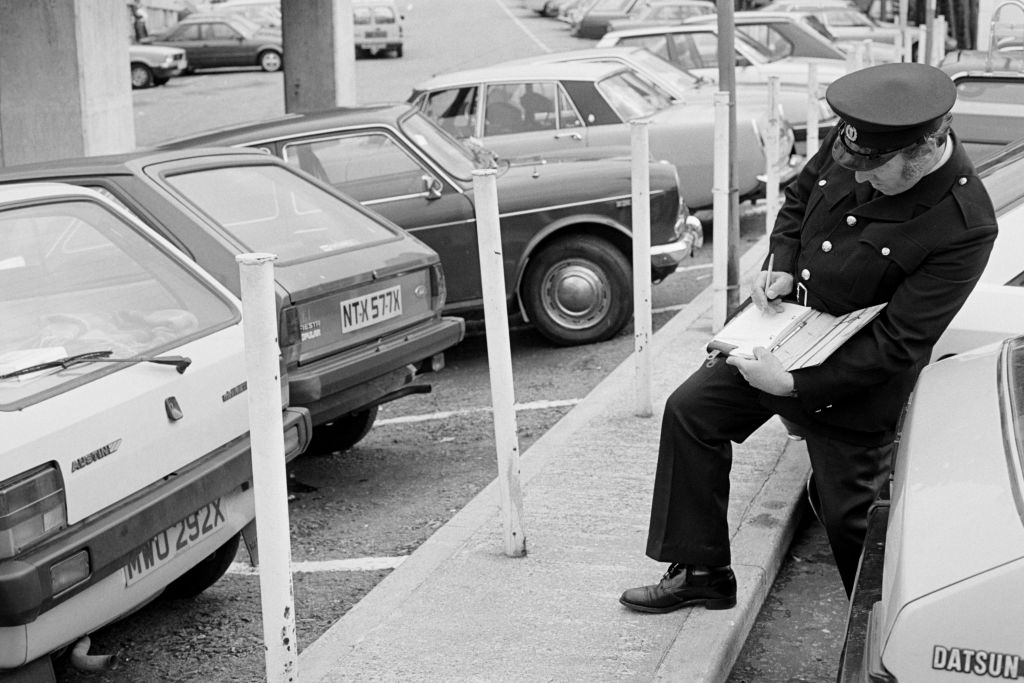23 February 1963: The case of the electrified Land Rover
On this day in 1963, an unsuspecting bobby gets a shock when he stumbles upon an electrified Land Rover.


Get the latest financial news, insights and expert analysis from our award-winning MoneyWeek team, to help you understand what really matters when it comes to your finances.
You are now subscribed
Your newsletter sign-up was successful
Want to add more newsletters?

Twice daily
MoneyWeek
Get the latest financial news, insights and expert analysis from our award-winning MoneyWeek team, to help you understand what really matters when it comes to your finances.

Four times a week
Look After My Bills
Sign up to our free money-saving newsletter, filled with the latest news and expert advice to help you find the best tips and deals for managing your bills. Start saving today!
Most of us would probably do almost anything to avoid getting a parking ticket. But few would go as far as a Sussex farmer in 1963, who, in his own words, was waging a “private war” against an enemy that was new to the capital – traffic wardens.
With his lorries bulging with produce from his farm, 40-year-old Peter Hicks would regularly drive to Covent Garden to set up shop. But as anyone who has driven in central London knows, finding somewhere to park is tricky, especially when you have a fleet of lorries. So, he parked them illegally on Shorts Gardens, near Seven Dials.
Before long, the parking fines started to rack up – about £30 a week. That's around £630 in today's money. But Hicks didn't want to pay.
MoneyWeek
Subscribe to MoneyWeek today and get your first six magazine issues absolutely FREE

Sign up to Money Morning
Don't miss the latest investment and personal finances news, market analysis, plus money-saving tips with our free twice-daily newsletter
Don't miss the latest investment and personal finances news, market analysis, plus money-saving tips with our free twice-daily newsletter
He took a device that usually runs an electric current through the fences on his farm and attached it to his Land Rover. His car now had 2,000 volts running through it – enough to give anyone who placed a ticket on it a jolt. (Remember, it's not the voltage that's dangerous, but the level of amps – the flow of electric current. So, while 2,000 sounds like a lot, the amps were kept low.)
He then placed his Land Rover so it was bumper to bumper with his parked lorries. Now the whole convoy was electrified. And lo and behold, the parking tickets dried up. "I've watched quite a few wardens cop it, trying to put a ticket on my truck", he told the BBC. "They gave up in disgust and shock!"
Then one day, 23 February 1963, a passing police constable stopped to examine the strange ticking noise coming from the Land Rover. He “received a nasty shock”, as did his intrigued sergeant and a police inspector. Hicks was arrested for assault.
The prosecutors would later decide that they couldn't make the charges stick, and his electric fence device was returned. Hicks agreed that he'd made his point.
Get the latest financial news, insights and expert analysis from our award-winning MoneyWeek team, to help you understand what really matters when it comes to your finances.

-
 Should you buy an active ETF?
Should you buy an active ETF?ETFs are often mischaracterised as passive products, but they can be a convenient way to add active management to your portfolio
-
 Power up your pension before 5 April – easy ways to save before the tax year end
Power up your pension before 5 April – easy ways to save before the tax year endWith the end of the tax year looming, pension savers currently have a window to review and maximise what’s going into their retirement funds – we look at how
-
 31 August 1957: the Federation of Malaya declares independence from the UK
31 August 1957: the Federation of Malaya declares independence from the UKFeatures On this day in 1957, after ten years of preparation, the Federation of Malaya became an independent nation.
-
 13 April 1960: the first satellite navigation system is launched
13 April 1960: the first satellite navigation system is launchedFeatures On this day in 1960, Nasa sent the Transit 1B satellite into orbit to provide positioning for the US Navy’s fleet of Polaris ballistic missile submarines.
-
 9 April 1838: National Gallery opens in Trafalgar Square
9 April 1838: National Gallery opens in Trafalgar SquareFeatures On this day in 1838, William Wilkins’ new National Gallery building in Trafalgar Square opened to the public.
-
3 March 1962: British Antarctic Territory is created
Features On this day in 1962, Britain formed the British Antarctic Territory administered from the Falkland Islands.
-
10 March 2000: the dotcom bubble peaks
Features Tech mania fanned by the dawning of the internet age inflated the dotcom bubble to maximum extent, on this day in 2000.
-
9 March 1776: Adam Smith publishes 'The Wealth of Nations'
Features On this day in 1776, Adam Smith, the “father of modern economics”, published his hugely influential book The Wealth of Nations.
-
 8 March 1817: the New York Stock Exchange is formed
8 March 1817: the New York Stock Exchange is formedFeatures On this day in 1817, a group of brokers moved out of a New York coffee house to form what would become the biggest stock exchange in the world.
-
7 March 1969: Queen Elizabeth II officially opens the Victoria Line
Features On this day in 1969, Queen Elizabeth II took only her second trip on the tube to officially open the underground’s newest line – the Victoria Line.